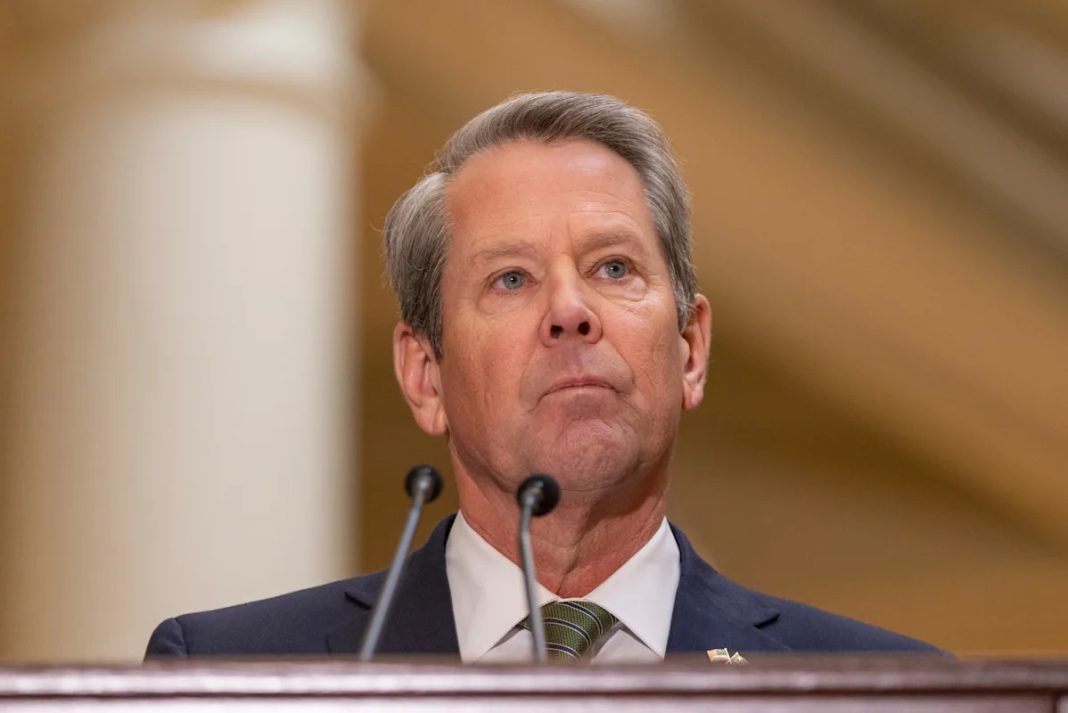ATLANTA (AP) — A federal watchdog reported Thursday on a Georgia Medicaid program that requires able-bodied adults to document low-paying work to be eligible for health care, a model the Trump administration is preparing to roll out nationwide.
A key finding of the U.S. Government Accountability Office is that the Georgia Pathways program has spent more than twice as much on administrative costs than it has on providing care. The report comes after Republicans mandated similar work requirements throughout the U.S. as part of the “big, beautiful bill” signed into law by President Donald Trump.
Starting in 2027, most adults who seek Medicaid coverage must first show they are working, taking classes or performing community service for at least 80 hours a month. And they must be extremely poor, earning incomes no higher than the federal poverty line.
The report attributes most of the administrative costs to the implementation of changes in how the program determines eligibility and enrolls people, and to duplicative technology, training and coordination while the state litigated to overcome Biden administration objections. The administrative spending remains significant, critics note.
“Now the entire country can see what we in Georgia already know — Georgia’s Medicaid work reporting requirement program is the real waste, fraud, and abuse,” Sen. Raphael Warnock, one of the Georgia Democrats who requested the report, said in a statement. “This report shows that Pathways is incredibly effective at barring working people from health coverage and making corporate consultants richer.”
A spokesperson for the governor did not immediately respond to a request for comment.
Millions of eligible people will lose coverage due to the Trump law because the administrative process will make it too difficult for them to repeatedly document their work, critics say, pointing to what happened in Georgia, which is so far the only state that imposes work requirements.
Georgia, which has among the highest rates of uninsured people, is one of 10 states that has refused to expand Medicaid to all adults with incomes of up to 138% of the federal poverty level, as envisioned by President Barack Obama’s health care overhaul.
Instead, Republican Gov. Brian Kemp heralded his July 2023 launch of Georgia Pathways to Coverage, which limits Medicaid for adults to those who can document the work requirements while earning incomes no greater than the poverty line, now set at $15,650 a year. Georgia’s traditional Medicaid program still covers poorer children, disabled adults, poor people in nursing homes and a handful of other adults.
Nationally, most adults on Medicaid in states that have expanded it are already working, and in Georgia, an estimated 246,365 adults are potentially eligible for traditional Medicaid or Pathways. But a year after it launched, Pathways had enrolled around 4,300. As of this spring, there were 6,514 adults enrolled, according to the state Department of Community Health.
Republicans have defended the low enrollment, saying Medicaid should be used only temporarily, until people can get insurance through their employer.
The GAO analysis shows that from fiscal year 2021 through the second quarter of fiscal year 2025, Georgia reported $54.2 million in administrative spending and $26.2 million on health care. More recently, the portion spent on administrative costs has declined, from 96.5% in fiscal year 2023 to 58.8% in fiscal year 2024. It is expected to drop more in 2025.
Nearly 90% of administrative spending came from the federal government, and the report says Georgia used $20 million in other federal grants to help implement the program, trying to make it easier for people to apply for coverage, according to the report. The state will spend more on improvements this year, and has also spent money to publicize the program and train more staff, the report notes.
“Work reporting requirements and all the additional bureaucracy they create come at a high cost from the federal government at a time when the government is trying to cut costs,” said Leah Chan, director of health justice at Georgia Budget and Policy Institute. “We have spent far more on creating additional bureaucracy than we have on actual health care benefits that allow people to see the doctor, fill prescriptions, etc.”
Advocates have noted the program makes no exceptions for people who are caring for children or other family, lack transportation, suffer from drug addiction or face other barriers to employment. There are also people with informal jobs that make documenting their hours difficult.
Kemp announced in January that he now wants to let low-income parents with young kids enroll in Pathways without meeting work requirements. That change, as well as an extension of the federal Medicaid waiver that enabled Pathways, has required Donald Trump administration approval.
___
Kramon is a corps member for The Associated Press/Report for America Statehouse News Initiative. Report for America is a nonprofit national service program that places journalists in local newsrooms to report on undercovered issues.

